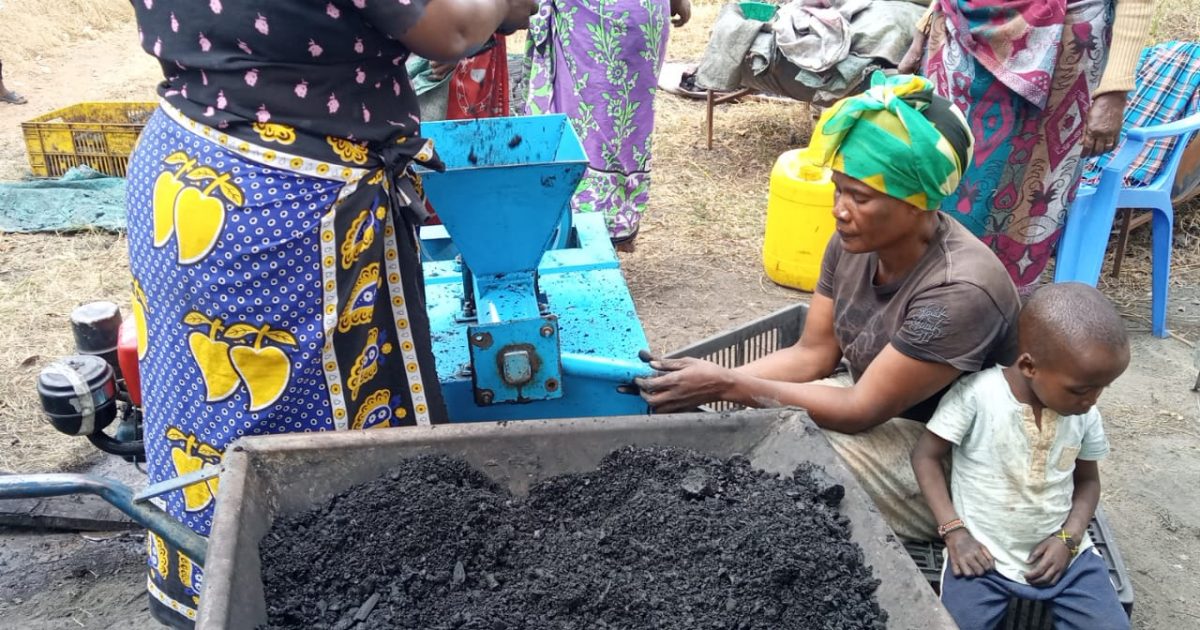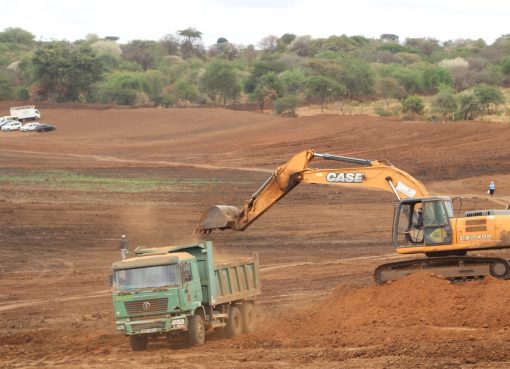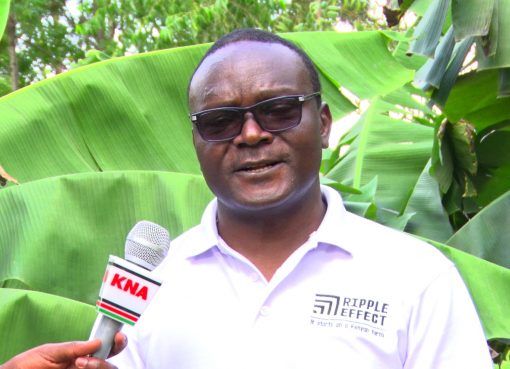Salukya Walyuke Self Help Group in Kitui County is using new technology to make charcoal briquettes from solid wastes, a great move that turns the waste into money and conserves the environment.
The chairlady of the 25 member group Sarah Mutuku says her group took the initiative to conserve the environment by using locally available waste to make charcoal briquettes and sell them locally.
She adds that members were equipped with the new technology after they went through some training in Nairobi sponsored by the Kitui County Government on how to make the charcoal briquettes from the solid waste.
After the training, Sarah went back to her home village at Matinyani and formed the Salukya Walyuke Self-help group (loosely translated as open your eyes for change) in November 2017 with 12 members whom she also trained on the new technology.
“After getting our group registration certificate from the Social Services Department, we started making the briquettes and selling them for our economic gains. The number of members has doubled to 25 to date with improved returns. We are economically doing well and have taken it as our daily job just like any other,” Sarah tells KNA.
The group uses waste of charcoal dust and also pieces of peeled cassava to make the charcoal briquettes. It is such waste that Sarah says could have ended up polluting the environment.
The chairlady noted that the charcoal briquettes are environmentally friendly since they don’t emit any smoke compared to ordinary charcoal.
“Step one of making the briquettes is sorting out the waste where we remove any unwanted objects such as nails, metal, sticks, or bottles which may be available in the charcoal dust. The unwanted objects can break our machine that’s why we remove them and then weigh the charcoal dust in a 90 Kgs bag then we sprinkle water on the charcoal dust to give it moisture,” the chairlady explained the process.
After sprinkling water, they then put the cassava waste and start making the briquettes using the machine. Once they are done, they are removed from the machine and kept to dry naturally.
According to Sarah, the charcoal briquettes last more than four times the cooking duration of the ordinary charcoal and is cheap as well.
The group produces 10 tons of the briquettes per week with a 90 Kg bag retailing at Sh2500 locally. They also sell a one kg tin at Sh50.
The group makes a huge profit since they spend about a total cost of Sh400 to make a 90 kg bag of charcoal briquettes which bring them Sh2, 100 profit.
Teresia Musili who also is a group member explained, “We buy the charcoal dust from charcoal vendors at Sh150 for a 90kg bag, then transport the same to our workshop at a cost. Therefore selling a one Kg of briquettes at Sh50 is economical and cheaper compared to the ordinary charcoal of the same price since our one kg of briquettes can go for almost eight hours without getting exhausted.”
The chairlady encouraged other women, youth, and men to emulate her group and venture into the initiative as it is a capital-generating activity and also conserves the environment.
“I would like to tell those who don’t have hope in life to make good use of the waste that is around them because it may be of great help to them. You can depend on yourself without waiting for assistance from others,” she said.
The major challenge the group is facing is the high cost of fuel since they use a diesel-powered charcoal briquette machine.
However, the group is working out on how to get electric-powered machine to use in their production for low cost of production.
By Denson Mututo and Joshua Muimi





